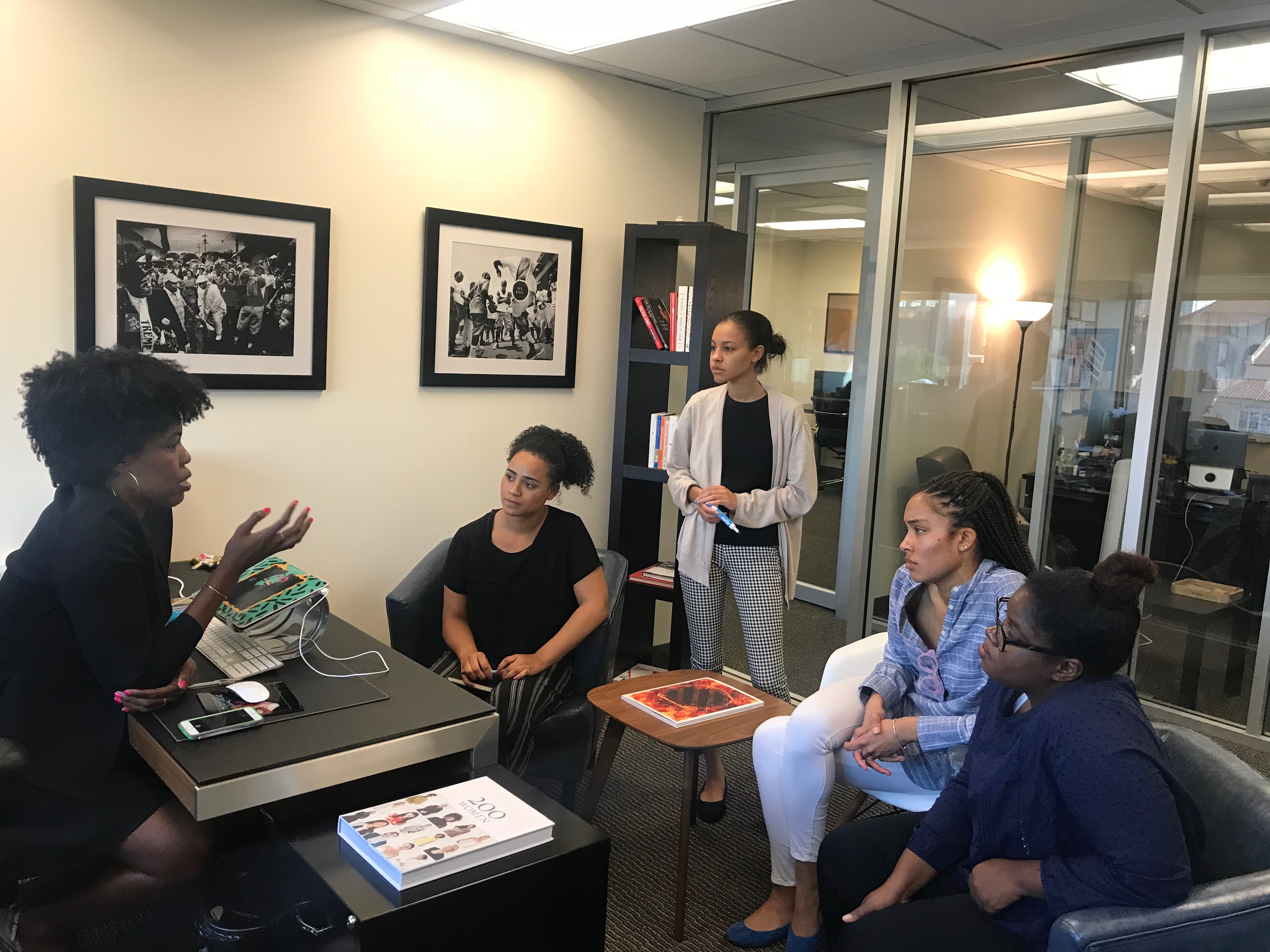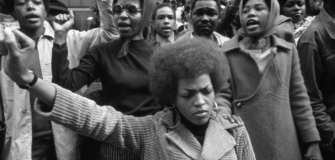What We Learned in Our Sister to Sister Salon
Share
This month, Upspoken women got together and held a Higher Heights Sister to Sister breakfast to talk about our political power and the challenges facing our community including job insecurity, the wealth gap, mental health, and why local politics matter.
 The U.S. political system ignores Black women’s voices more than any other group, so we’re coming together to discuss what issues matter to us and how we transform conversations into political action.
The U.S. political system ignores Black women’s voices more than any other group, so we’re coming together to discuss what issues matter to us and how we transform conversations into political action.
It’s not easy to talk candidly about adversity, so we are grateful for the strong community of Black women who participated and thank Higher Heights for creating a space for Black women to make their voices heard! If you would like to host your own salon, check out the Sister to Sister Salon page for guiding questions and more.
Here are some takeaways from our Salon:
- Black women do it all. Black women juggle many responsibilities at the same time. They’re often the heads of households, breadwinners, and take care of their families, but they lack the support and help they need.
- Navigating the workplace as a Black woman isn’t easy. Managing everyday life microaggressions, workplace respectability politics and power dynamics, and codeswitching all the time is exhausting.
- There are lots of barriers to getting help. It’s difficult to overcome the stigma associated with speaking openly about our mental health challenges. We’re often told to “pray about it” rather than seek medical help. When we do get help, we often don’t feel heard because there aren’t enough doctors and therapists who reflect our experiences.
- Black women face serious wealth gaps. Our country’s history of slavery, racist and sexist policies, and unequal pay has put Black women decades behind our white counterparts. Without generational wealth, it’s difficult to get ahead. This can trap Black people in cycles of poverty and is a cause of the disproportional numbers of Black people struggling with housing insecurity and homelessness.
- It’s impossible to take unpaid internships or fellowships that might open up career opportunities when you’re not financially secure, or are saddled with debt. Black women often don’t have the privilege to take jobs that pay less, but might support career exploration because we’re struggling to pay off student loans or other debt.
- Politics seems hopeless right now. Many of us are politically active and knowledgeable, but feel discouraged by today’s political landscape.
- We need to demystify local politics. We know how important local elections are and that their results impact policies that influence us every day, but we often don’t have the information we need to make informed decisions. We need localized voter guides that clearly explain where candidates stand on issues and a deeper understanding of local politics.
It can be painful to confront these inequalities head on, but these conversations shed light on the systemic discrimination Black women face. We can take charge and harness our collective political power to affect policy that actually works for us. Check out HigherHeightsforAmerica.org to learn more.




Follow Us